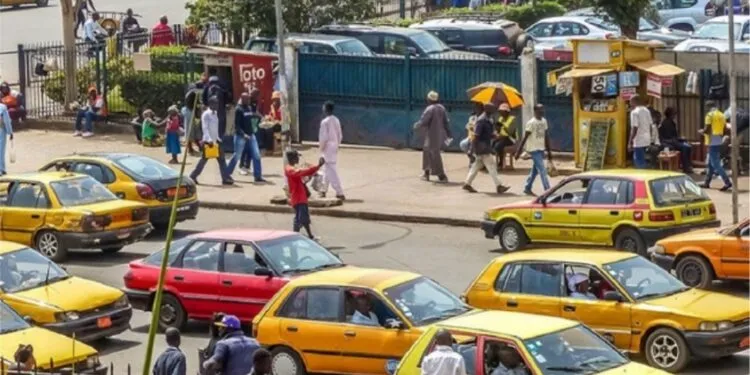By Tata Mbunwe
Cameroon’s Ministry of Transport and South Korean automaker, Songuo Motors, have signed a Memorandum of Understanding (MoU) to modernize the country’s taxi fleet with new vehicles and improve urban transport.
The agreement was signed on March 13 by Transport Minister Jean Ernest Masséna Ngalle Bibehe and Songuo Motors Chairman & CEO Yong Bok Shi in a bid to transform Cameroon’s public transport sector.
Dubbed the “Cameroon Taxi Project,” the initiative will involve setting up an assembly plant in Cameroon, which will assemble an estimated 10,000 taxis, pickups, tricycles per year.
The plant will assemble vehicles and adapt them to Cameroon’s road conditions.
The plan includes the importation of 3,000 taxis, 5,000 motorcycles, and tricycles of various models in the first phase.
The imported vehicles will benefit from tax and customs incentives, as outlined in the 2025 Finance Law.
It will encourage the replacement of older vehicles by providing drivers with leasing options, which will allow them to own a vehicle after installment payments (balance-and-take).
These measures, the Minister of Transport said, aim to improve road safety, phase out outdated taxis, and make vehicle ownership more accessible for transport operators.
The initiative comes as Cameroon has been under international pressure to curb air pollution, primarily coming from the automobile industry, by encouraging the use of new vehicles.
Most vehicles imported into the country are older models, which are often linked with high smoke production and air pollution.
Local Assembly Plant to Boost Transport Industry
To ensure long-term supply and technological transfer, Songuo Motors will establish an assembly plant in Cameroon with a production capacity of 10,000 vehicles annually (including taxis, tricycles, and pickup trucks).
It will also assemble 40,000 motorcycles and tricycles per year.
While some components will be imported, local workforce training and partnerships with national subcontractors will be prioritized.
Before approving the project, the government conducted a test to ensure the vehicles’ adaptability to Cameroon’s roads.
A technical assessment launched in November 2023 evaluated the vehicles’ durability, maintenance ease, and user-friendliness.
Following a month of testing, automotive experts confirmed the vehicles met all technical and regulatory requirements for Cameroon’s urban transport.
“These vehicles meet the current technical and regulatory requirements and are perfectly suited to urban transport in Cameroon,” said Jean Ernest Masséna Ngallè Bibéhè.



